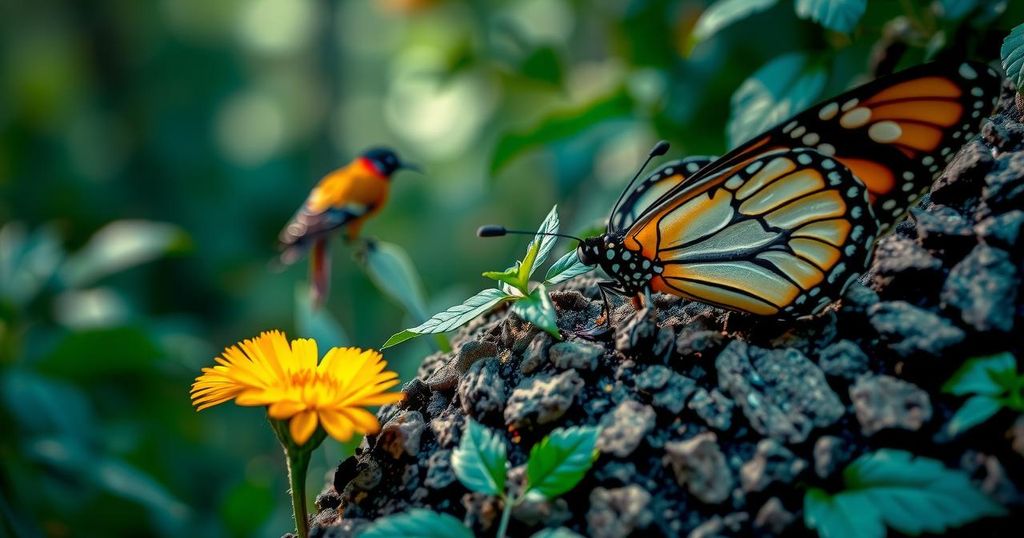The article examines the significant yet often overlooked issue of biodiversity loss amid the escalating impacts of climate change. Experts stress the urgent need for action, referring to international efforts agreed upon at the UN biodiversity convention to tackle this crisis. As world leaders gather for the next convention, the alarming extinction rates call for effective measures to ensure ecological health and sustainability.
In recent weeks, the most severe impacts of climate change have been prominently evident, exacerbated further by an urgent yet less visible issue: biodiversity loss. Giuliana Viglione, an editor at Carbon Brief specializing in food, land, and nature, noted, “Biodiversity loss just gets a lot less attention than climate change. And I think one of the issues with biodiversity in particular is it’s much less tangible.” Biodiversity encompasses the diverse array of life forms on our planet and the intricate interdependencies that exist among them, such as the role of butterflies in pollination and coral reefs in providing shelter for marine life. Yet, over a million species face extinction due to human activities, threatening the delicate balance of ecosystems crucial for the health of our planet. Viglione emphasized, “Biodiversity is the health of our planet,” underscoring humanity’s reliance on diverse ecosystems for fundamental needs like food, clean water, and air. At the UN biodiversity convention held in Montreal two years ago, nearly 200 nations made commitments to combat biodiversity loss, addressing various issues from wildlife conflict management to cutting subsidies detrimental to the environment. Now, as world leaders converge in Colombia for the 16th United Nations Convention on Biological Diversity, they reassess their progress against the backdrop of ongoing and rapid extinction rates, something the UN has branded “humanity’s senseless and suicidal war with nature.” NPR’s Nathan Rott highlighted the nature of this convention, comparing it to climate change summits, where countries reconvene to evaluate commitments made under the UN Convention on Biological Diversity. Countries pledged to protect 30% of terrestrial and marine environments by 2030 and to curtail harmful subsidies, among other commitments. However, Rott expressed that despite these strides, there remains considerable work to achieve these aims in a meaningful way. Concurrently, discussions at the UN convention focus on the growing danger of species extinction. Notably, NPR’s climate correspondent Lauren Sommer reported from Hawaii, where significant efforts are underway to salvage the native tree snail, a species once abundant, which now faces near obliteration—with more than half of its 750 species gone in just a few decades. Conservationists like David Sischo and his colleagues are dedicated to preserving what remains, navigating the challenges posed by climate change and habitat loss, further emphasizing the urgent need for effective conservation strategies.
The article addresses the critical relationship between biodiversity and climate change. It highlights how biodiversity impacts the health of ecosystems, which in turn affects human survival. The alarming rate of species extinction due to human activities is emphasized, showcasing the urgency of international agreements aimed at halting this trend. The context of the UN biodiversity conventions frames the discussion of governmental commitments and the complexities involved in executing meaningful conservation efforts in the face of climate change.
In conclusion, the ongoing discourse surrounding biodiversity loss in relation to climate change reveals pressing challenges that require urgent attention. International commitments made during UN conventions serve as a framework for progress, yet the question remains whether these pledges will translate into tangible actions. The insights provided by experts underscore the vital interconnectedness of all life forms and the necessity for robust conservation efforts to ensure ecological balance and human survival.
Original Source: www.wrvo.org






